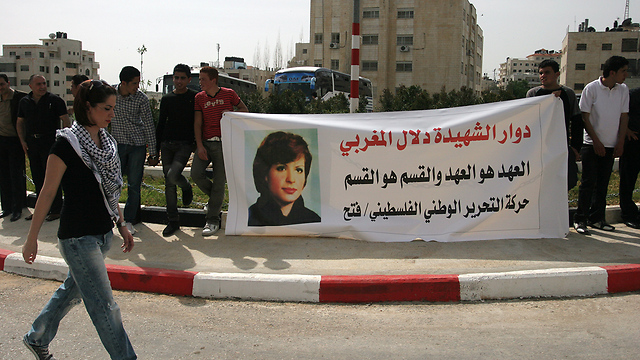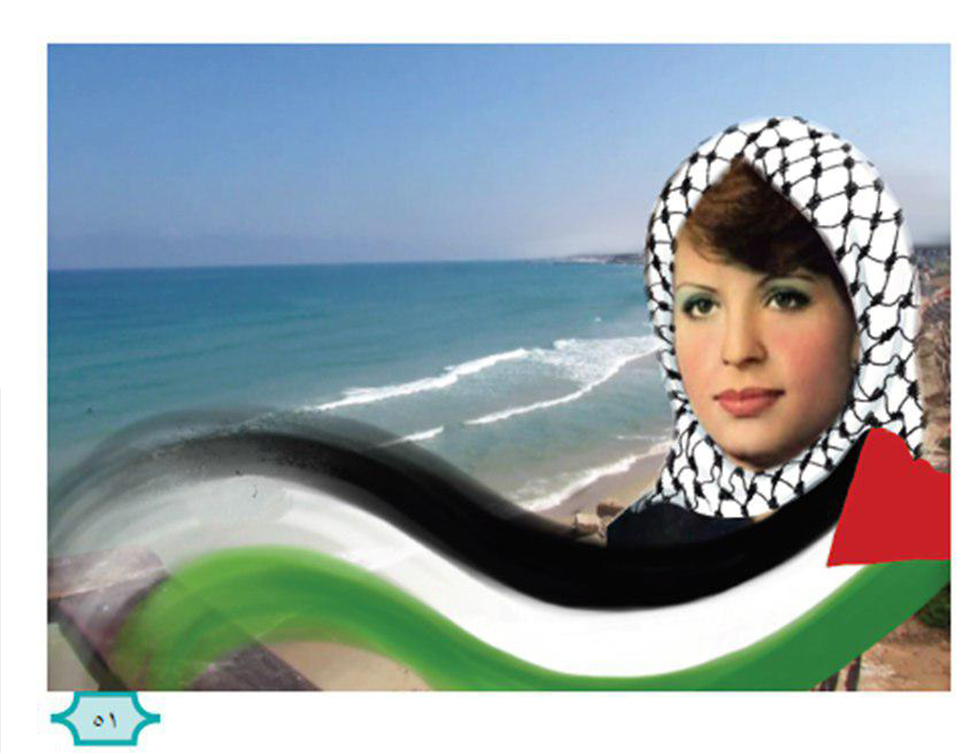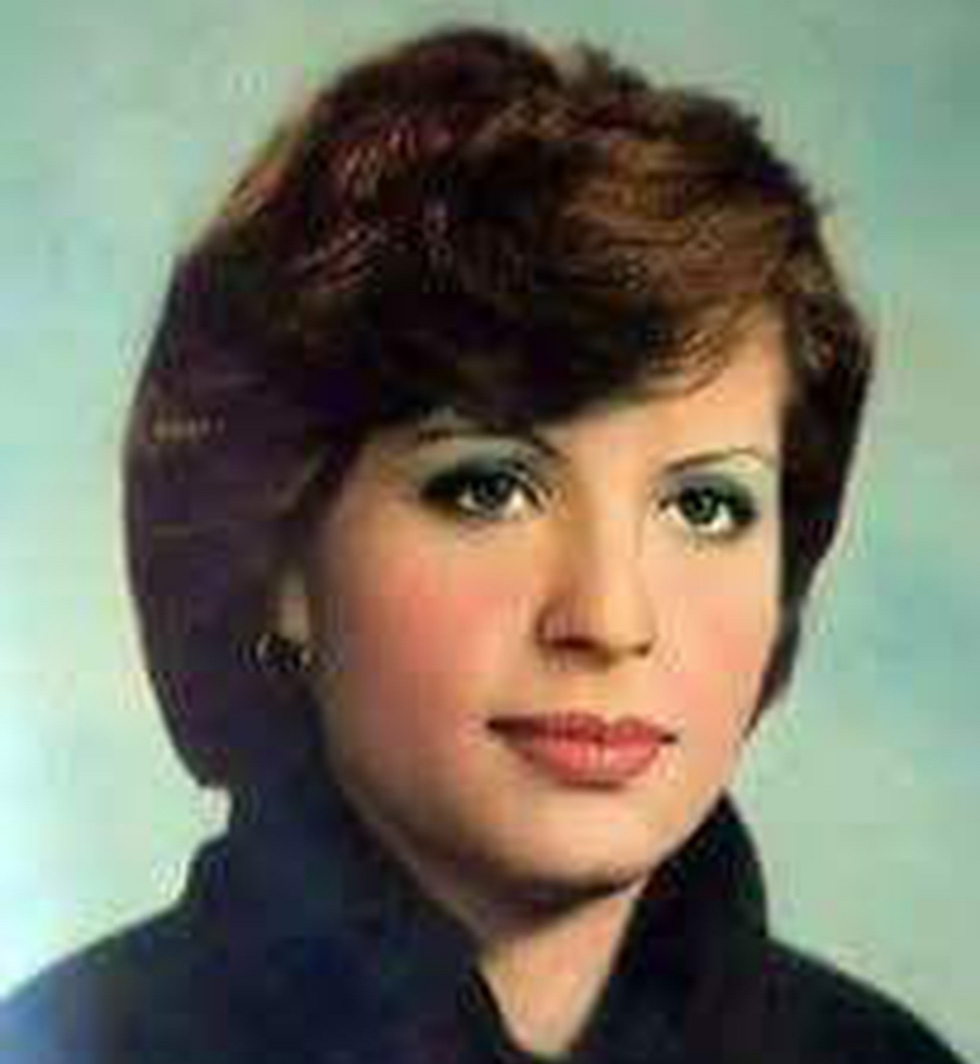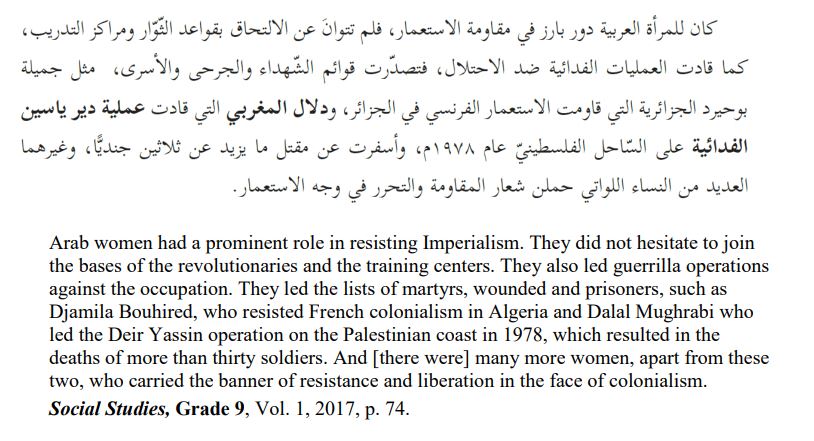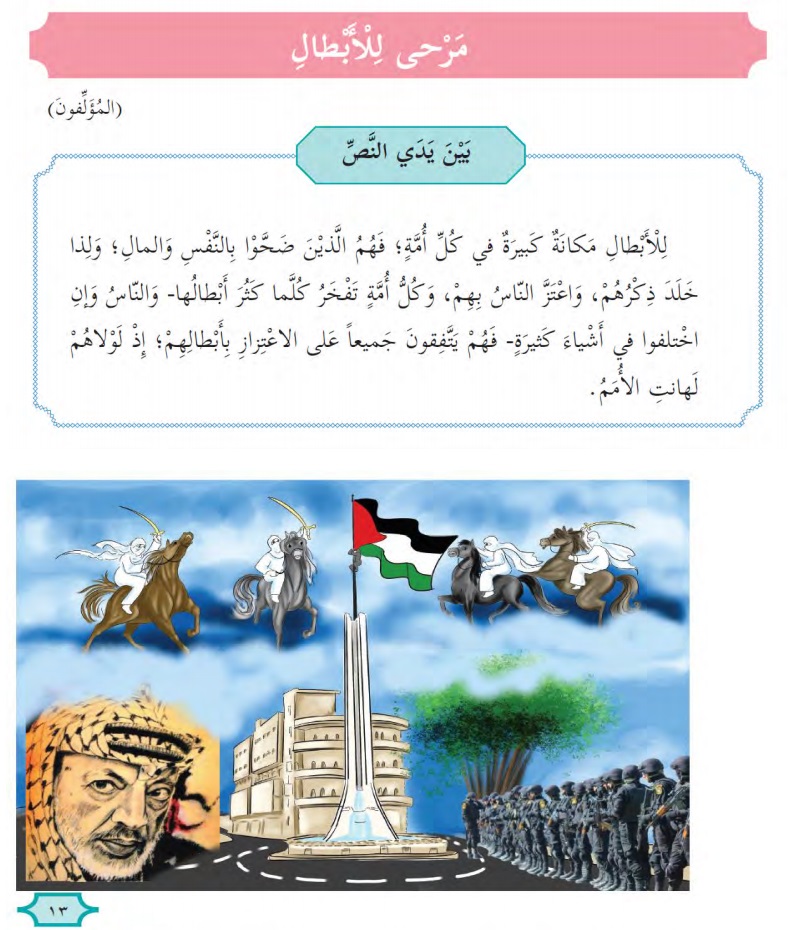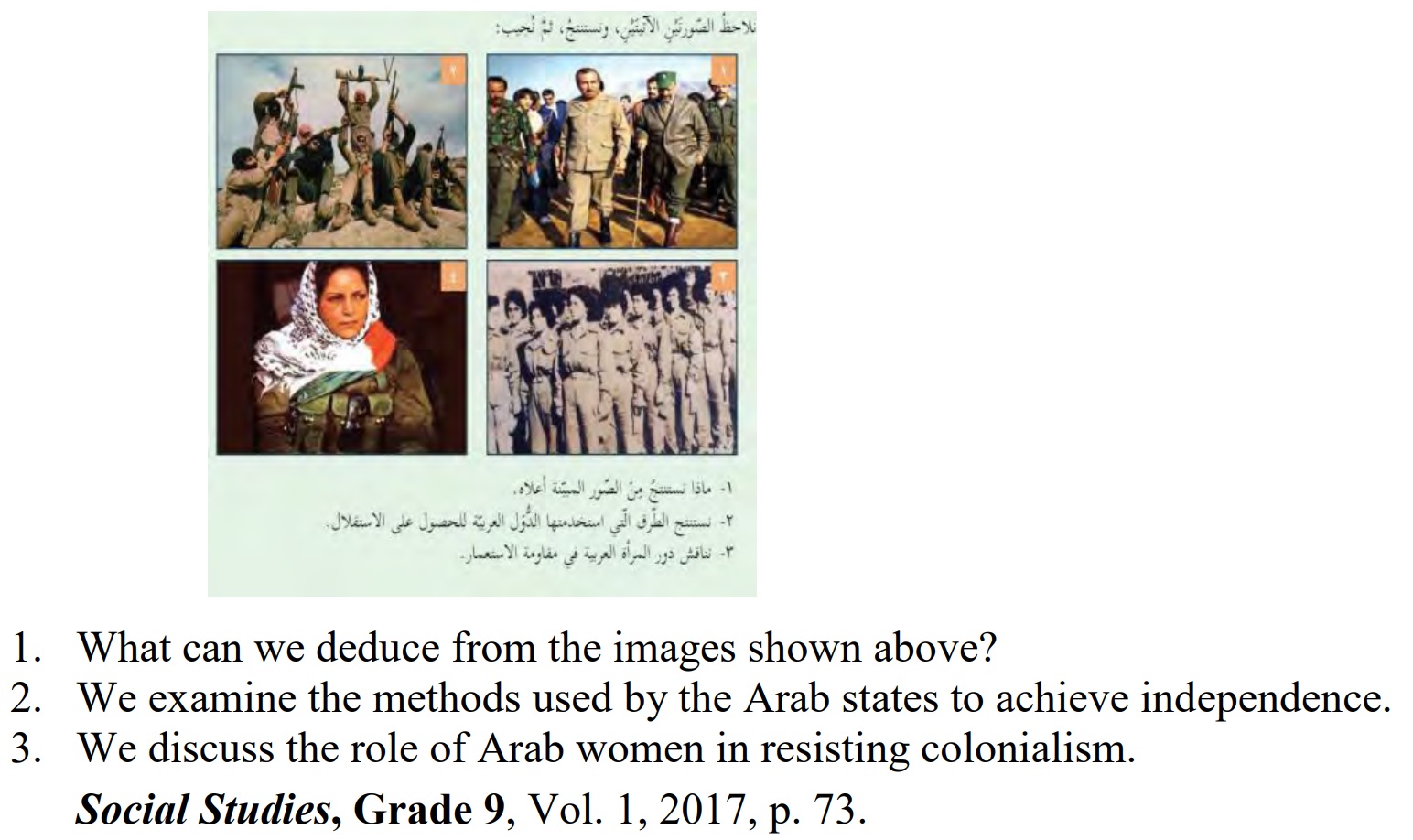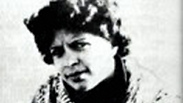
Palestinian textbook immortalizes Coastal Road massacre terrorist
Dalal Mughrabi, who led the terror cell that murdered 38 Israelis, among them 13 children, in the 1978 attack, is often glorified and immortalized in the Palestinian Authority; new textbook for 5th graders includes entire chapter dedicated to her, romanticizing her actions.
The Coastal Road massacre of 1978, when 11 terrorists hijacked a bus on the Coastal Highway and murdered 38 Israelis, including 13 children, left a deep scar on Israeli society. Palestinian society, meanwhile, glorifies the killers, particularly cell leader Dalal Mughrabi, who was killed in a fire exchange with security forces and over the years became one of the symbols of the Palestinian struggle.
The Palestinians refer to the attack as the "Operation of the Martyr Kamal Adwan," and it is considered one of the important milestones in the Israeli-Palestinian conflict.
Mughrabi was the only one of the 11 terrorists who perpetrated the attack to become a symbol, and the rest of the members remained relatively anonymous. The fact she was a woman, as well as the leader of the terror cell, undoubtedly helped bolster her popularity, in addition to the fact she was a member of Fatah, which controls the Palestinian Authority and the education system there.
Mughrabi was buried by Israel at a cemetery for enemy combatants in the Jordan Valley. She was supposed to be exhumed and returned to Lebanon as part of the 2008 prisoner exchange between Hebzbollah and Israel for the remains of IDF soldiers Ehud Goldwasser and Eldad Regev, but when her grave was opened, no body was found. The common belief is that underground currents moved the body elsewhere.
Since the establishment of the Palestinian Authority, Mughrabi has been immortalized in many ways—schools, summer camps and even sporting events were all named after her. Sometimes, however, the PA caves in to international pressure over Mughrabi's commemoration. For example, an official inauguration ceremony for a square in Ramallah named after Mughrabi was canceled. In another instance, the Belgian government halted financial aid to schools in the Palestinian Authority after learning a school in Hebron built with Belgian money was named after Mughrabi, while Norway demanded the PA to return aid money used to construct a women's center in Burqa named after her.
In early 2018, the Palestinian Authority published a series of new textbooks for students in the 5th-11th grade. This completed a comprehensive reform of Palestinian textbooks.
The research institute IMPACT-SE, which is located at the Hebrew University of Jerusalem, analyzed the textbooks and discovered a new chapter dedicated entirely to Mughrabi in a textbook for 5th graders. Three other textbooks were also found to be glorifying Mughrabi.
"Our Palestinian history is filled with many names of shahids (martyrs) who sacrificed their souls for the homeland, among them is the shahid Dalal Mughrabi, who in her struggle marked one of the images of opposition and bravery, and for that her memory remains forever etched in our hearts and minds," the chapter begins.
Mughrabi's life story is then told, concluding with a detailed recounting the day of the attack, which starts with the terror cell's boat ride to Israel and the drowning of two members of the cell when the boat flipped over in the stormy sea.
The story doesn't stick to the facts. The cell is said to have made landfall in Jaffa (to go with Mughrabi's nickname as the "Bride from Jaffa"), despite the fact the terrorists reached the shore in the Ma'agan Michael area, where they murdered American photographer Gail Rubin.
The hijacking of the bus is described in romantic terms, according to which Mughrabi boarded the bus and announced to the hostages that the cell members had no intention of killing them and only wished to free Palestinians imprisoned in Israel, and that they demanded their right to their homeland.
The firefight that ensued between the terrorists and Israeli security forces is described as an asymmetrical fight, and the textbook claims the IDF caused the death and injury of many of the Israeli hostages. The chapter ignores testimonies according to which the terror cell slaughtered some of the Israelis hostages, in addition to those who are believed to have been hit by IDF fire during the rescue effort.
The students are later required to answer different questions about the study material, including why Mughrabi told the hostages "We don't want to kill you." It appears the textbook is trying to moderate the abduction and massacre of innocent civilians and embellish it by making it seem like the Palestinians had no other choice but to kidnap Israelis in order to free Palestinian prisoners.
In a textbook for 9th graders, Mughrabi is portrayed as having killed more than 30 Israeli soldiers, when in reality only one soldier was killed, with the rest of the dead being civilians, including children.
A history book for 11th graders includes a photo of Mughrabi, with the students asked to "draw conclusions from the stages of Palestinian resistance from 1948 to Palestine's recognition by the UN in 2012."
"It appears the Palestinian Education Minister Sabri Saidam is determined to radicalize the school curriculum, despite his promise that a significant reform will help improve Palestinian textbooks," said IMPACT-SE's Chief Executive Officer Marcus Sheff. "It's shocking to think the new curriculum encourages young Palestinians to die as shahids, cheapens their lives, and glorifies terrorist child killers like Dalal Mughrabi."











